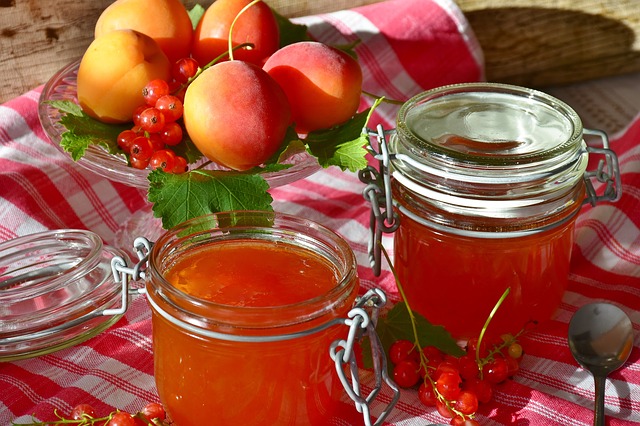The winter season is upon us so much of the harvest preservation has likely concluded. But, it’s never too late (or early) to begin planning for the next crop. Let’s discuss one of the best options for preserving your vegetables, fruits, and even meats.
Canning at first glance sounds like one of the most-difficult ways to preserve your harvest food. With freezing, you simply toss food in freezer bags and then store it in your deep freezer. With dehydrating, you justt place your food in a machine that slowly dries it out. Both ways have their advantages and disadvantages. With canning though, you need a canner and canning jars – and there’s always the possibility that jars might explode. Honestly though, canning isn’t as scary as it sounds. If you purchase quality glass jars and follow the directions to a “T”, you should be fine.
A fun place to start is by making jellies or jam. Pick your favorite fruit, find a jam or jelly recipe and give it a try. You need some half pint glass jars and tongues that will allow you to grab hot jars out of boiling water. Dig around and see if you have a pot large enough to hold the jars and get started. Follow the recipes and directions and you’ll do fine. Any jars that don’t seal properly should go in the fridge and be used right away.
Get a FREE Subscription to PREPARE
Another great place to start is to with a simple vegetable canning project. Canning green beans is very simple and you can use the beans throughout the year in any dishes you’d use store-bought canned beans. Clean, cut, and blanch your green beans to get them ready for canning. Then follow canning instructions to make sure you cook them long enough and get them to a high enough temperature to kill any bacteria and create a good seal. As with any type of canned good you should store jars that didn’t completely seal in the fridge and use them within the next couple of day.
Another great option is pickles. If you have a bunch of cucumbers growing in the garden, or want to try your hand at some sort of other pickled vegetable (like cauliflower, peppers, or okra for example), give canned pickles a try. The vinegar solution already does a great job preserving the food. Canning ads even more time and allows you to store vegetable that would otherwise go back quickly even longer.
One suggestion though, you probably should stay away from canning meats or high acid produce like tomatoes in the beginning of your canning career. Those can be a little trickier and require some special attention to be handled successfully. Get a few batches of canning under your belt, and invest in some good canning gear (including thermometers and proper canning pots before giving these types of canned goods a try.
Enjoy the process!






